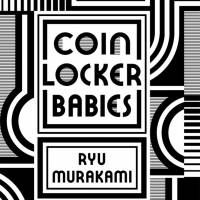Ryu Murakami is known for the sex-drugs-and-violence style of his fiction and "Coin Locker Babies" has it all.
Published in 1980 Murakami's dystopian novel has been described as a cyberpunk coming-of-age tale, and it's easy to see why.
Murakami was projecting several years into the future when he envisioned Tokyo in the late 80s as a violent town with a toxic heart, where criminals and social outcasts congregate. But there is little here that is actually "cyber": technology is never part of the story. Instead, it's a punk's-eye view of the near future where anarchy is on the agenda — a tale of abandonment and revenge, and how when opposites attract the results can be catastrophic.
Hashi and Kiku are two boys abandoned by their mothers and left in train-station coin lockers. In the orphanage where they end up they naturally drift toward each other, get adopted and grow up as brothers.
Hashi, who eventually becomes a gender-bending popstar, is the physically weaker of the two, but has a voice that mesmerizes all those around him. The tall, muscular Kiku tends to speak with his fists and has a burning desire to destroy Tokyo, along with the unknown mother who bore him.
At times "Coin Locker Babies" feels like several books in one, with multiple climaxes propelling its the characters toward the ultimate spasm of destruction that in the end is left up to the imagination of the reader, revealed not by what Murakami writes but by what he leaves out. (Andrew Lee)
Each week "Essentials" introduces a work of fiction that should be on the bookshelf of any Japanophile.



